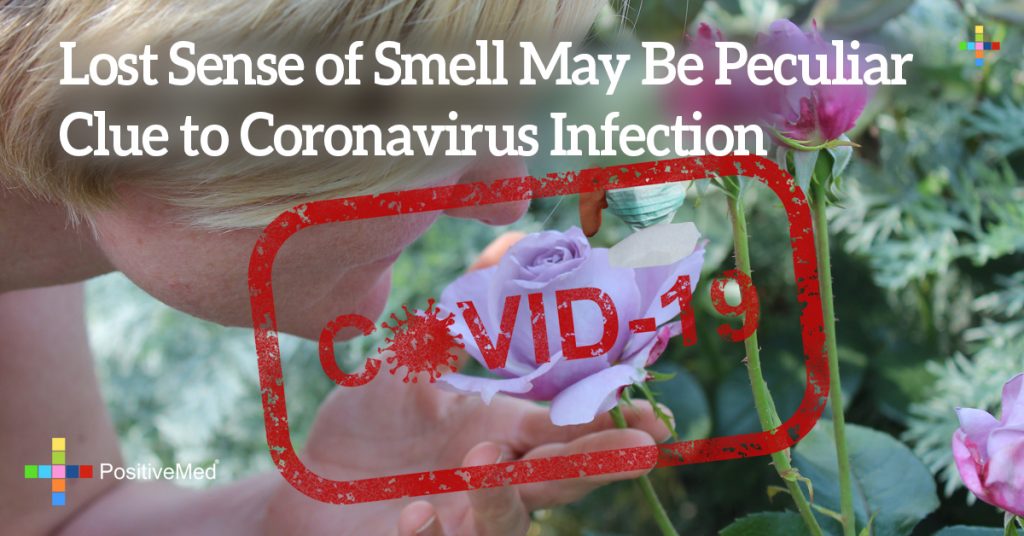As time goes by, more and more surprising effects of the researches on the novel coronavirus appear. The medical community is still putting all the pieces together. The evolution of medical knowledge is filled with trial-and-error, patience, and diligence. Just recently, it has been observed that one of the Coronavirus infection early symptoms may be the loss of sense of smell and taste. Doctors around the world are getting more insight into the types of symptoms that the new coronavirus’ patients might have. It’s decidedly good news!

What is anosmia and ageusia?
The American Academy of Otolaryngology-Head and Neck Surgery believe that detecting anosmia and dysgeusia can indicate the COVID-19 infection. Anosmia is the total or partial loss of the sense of smell, while ageusia is the loss of taste functions of the tongue. These symptoms are now officially added to the list of screening tools for the illness. However, a diminished sense of taste and smell can be symptomatic of a wide variety of illnesses, respiratory or otherwise. It’s not a specific, nor a uniquely distinctive feature of COVID-19. A temporary loss or reduction in your smell or taste during every respiratory infection is quite common.
Contribution to slowing transmission
This symptom may show up, even if there are no other signs. That’s why anyone who develops a loss of sense of smell should self-isolate. It’s crucial to spread the news because a knowledge that a lost sense of smell and taste are peculiar telltale signs of Covid-19, could contribute to slowing transmission and save lives. The strength of that symptom isn’t subtle and easy to overlook. Imagine an infected mother who couldn’t smell her baby’s full diaper.
Global research
The US doctors are not the only ones to notice that fact. They are citing reports from colleagues around the world, among which France, Iran, Italy, Germany, etc. In South Korea, 30 percent of 2,000 patients who tested positive, and were mild cases, experienced anosmia as their major presenting symptom. The data published is still limited but doctors all over the globe raise warnings. The information popped across social media among infected individuals as well. These facts regarding COVID-19 are nothing new in general medicine. Sudden loss of smell may be associated with certain respiratory infections and previously described coronaviruses were known for causing similar symptoms. A significant number of COVID-19 patients suffering from the loss of sense of smell and taste in South Korea, China, and Italy has been observed. In Germany, more than 2 in 3 confirmed cases have anosmia.
What about accompanying allergies or sinusitis?
Doctors confirm that it’s normal to temporarily lose one’s sense of smell with many viral infections or allergies. Respiratory viruses can cause sinusitis. When cavities around the nasal passages become inflamed, it inhibits a person’s ability to smell. Sense and smell are interconnected, so distortion of the sense of taste is a natural consequence. In the absence of allergies or sinusitis, symptoms should alert doctors. Only a full clinical study integrating this symptom provides clarity.
Hidden carriers
Some people are hidden-carriers of the virus. They don’t have any other signs of this illness and seem healthy, but they are carrying the virus and may be spreading it forward. The most common COVID-19 symptoms include cough, fever, shortness of breath, headaches, and general aches and pains. Some patients also report digestive issues like diarrhea. In 200 of the earliest patients in China, digestive or stomach symptoms occurred in about half of them. Even if it was believed at first, that the virus affects solely the respiratory tract. Fever and cough and shortness of breath still prevail over other symptoms. A large percentage of the infected patients are asymptomatic or experience a loss of sense of smell and/or taste.
What should doctors do during the pandemic?
As a result of these discoveries, health care workers should use personal protective equipment when treating patients who have lost their senses of smell. Otolaryngologists typically treat smell and taste disorders. The virus replicates in the nose and the throat, so any medical exams in this area can prompt coughs or sneezes that expose the doctor to infection. Doctors of this specialty are among the highest risk groups when performing upper airway surgeries and examinations.







